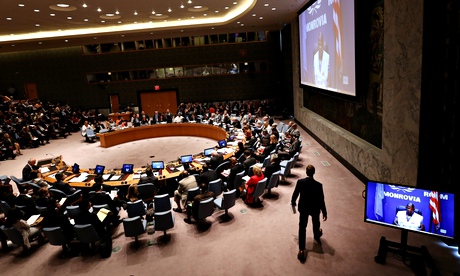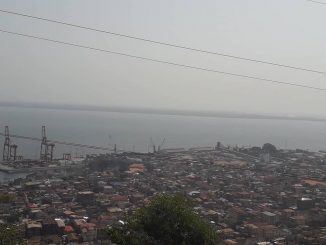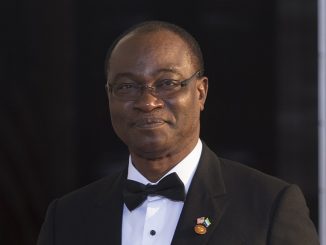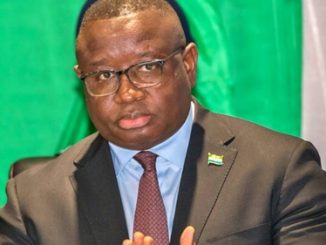
The U.N. Security Council voted unanimously Thursday on an urgent resolution calling for nations to provide immediate assistance in the fight against Ebola, which WHO Director Margaret Chan called “likely the greatest peacetime challenge” the United Nations has ever faced.
The resolution called on member nations to lift travel and border restrictions in the Ebola-affected region of West Africa, and to step up their response to the disease, which it said was a “threat to international peace and security.”
The resolution was sponsored by 130 countries, the highest level of support for any security council resolution in the history of the U.N., according to U.S. Ambassador Samantha Powers, who is also the council’s president.
In remarks before the vote, U.N. Secretary General Ban Ki-moon also announced the creation of an emergency health mission to coordinate the international response to the Ebola crisis, and said the agency estimates it needs a 20-fold increase in assistance to turn the tide of the outbreak.
Ban said the U.N. has facilitated the use of airports in Spain and Ghana as travel hubs for the flow of medical personnel and supplies into West Africa, and called on major airlines and shipping companies to also resume services to Ebola-stricken nations.
Ban said the new mission, the U.N. Mission for Ebola Emergency Response (UNMEER), would focus on five priorities: stopping the outbreak, tr
The secretary-general said the new mission would align the World Health Organization’s strategic expertise with the logistical capacities across U.N. agencies.
Senior U.N. System Coordinator for Ebola Dr. David Nabarro, said the outbreak is doubling in size every three weeks, and urged a “massively scaled up” response.
Speaking from Monrovia, Liberia, Dr. Jackson Naimah of Medicins San Frontieres, an organization that has been an outspoken critic of the U.N. and other organizations it feels have been too slow to mobilize against Ebola, painted a grim picture on the ground.
Patients are dying at the front gates of the hospital where he works, Naimah said, begging to be let in to the overflowing treatment center.
One boy, whose father had died of Ebola, approached the gate, his mouth bloodied, but there was no space to take him in, Naimah said.
“I thought to myself, that this boy is going to take a taxi, and he is going to go home to his family … infect his family, and also other people,” Naimah told the assembly via a live video feed, and added that the future of his country “is hanging in the balance.”
eating the sick, ensuring essential services, preserving stability and preventing further outbreaks.
“The suffering and spillover effect in the region and beyond demand the attention of the entire world,” Ban said. The Security Council has met only twice before to discuss the security implications of a public health issue, Ban said, both times to address the AIDS epidemic.
“The gravity and scale of the situation now require a level of international action unprecedented for a health emergency,” he told the assembly. “We cannot afford delays. The penalty for inaction is high.”
“Please send your helicopters, your centers, your beds and your expert personnel. But know that we also need the basics” like soap, water and buckets, Naimah said. “We do not have the capacity to respond to this crisis on its own. If the international community does not stand up, we will be wiped out.”
Chan said international aid commitments made this week would vastly transform the U.N.’s ability to control the outbreak, and called them a “clarion call for other countries to follow.”
“None of us experienced in containing outbreaks has ever seen in our lifetimes an emergency on this scale, with this degree of suffering, and with this magnitude of cascading consequences,” Chan said.
Power called on other nations to commit resources to the crisis.
The U.S. ambassador gave an account from another MSF staffer, who said he spoke to a father who had brought his sick daughter in the trunk of his car, hoping to save the rest of his family from the virus. There was no room, and he was turned away, Power said.
“We don’t want to live in a world where a father bearing his sick daughter is turned away. It’s against everything we believe in and stand for. It’s wrong, and it’s dangerous,” Power said.
“One of the main reasons this outbreak has spread dramatically is because up to now, we haven’t come together sufficiently to confront it,” Power said. “Knowing what we know now … we will have no excuse if we still fail to come together and do what is needed. Nobody will be able to say we didn’t realize it could get so bad.”




Leave a Reply